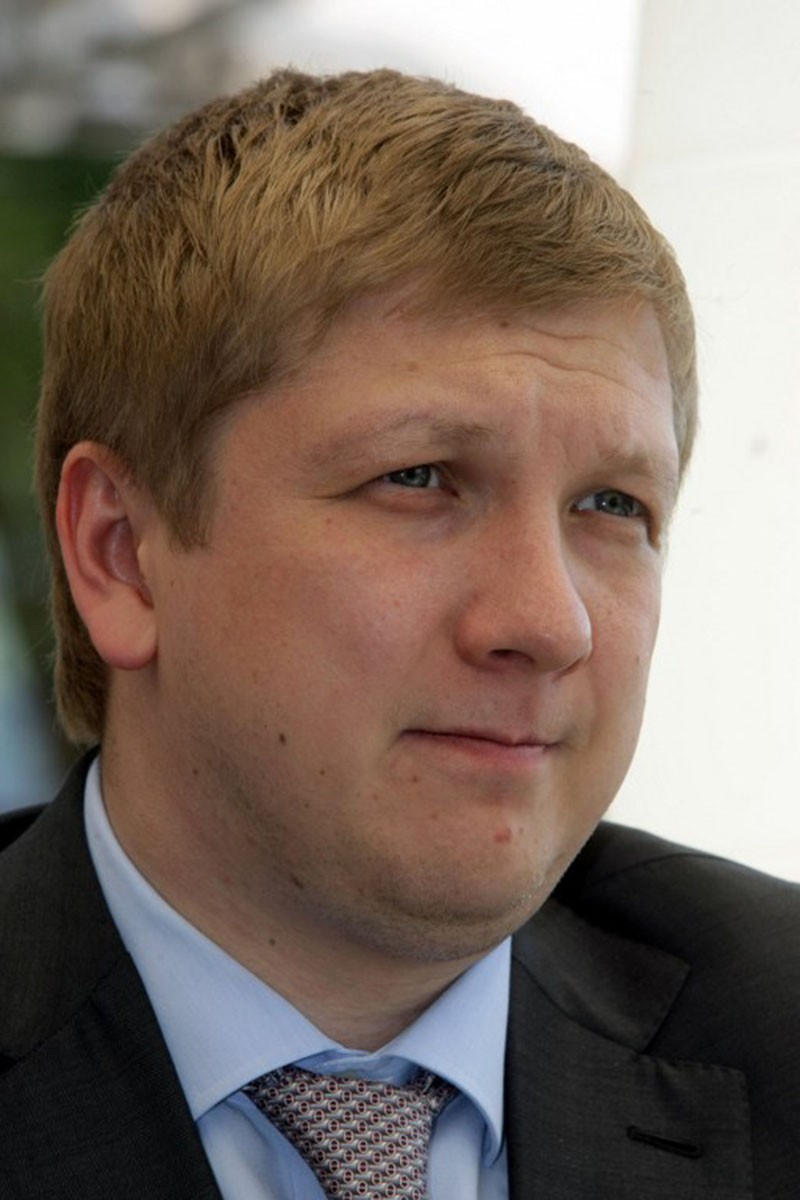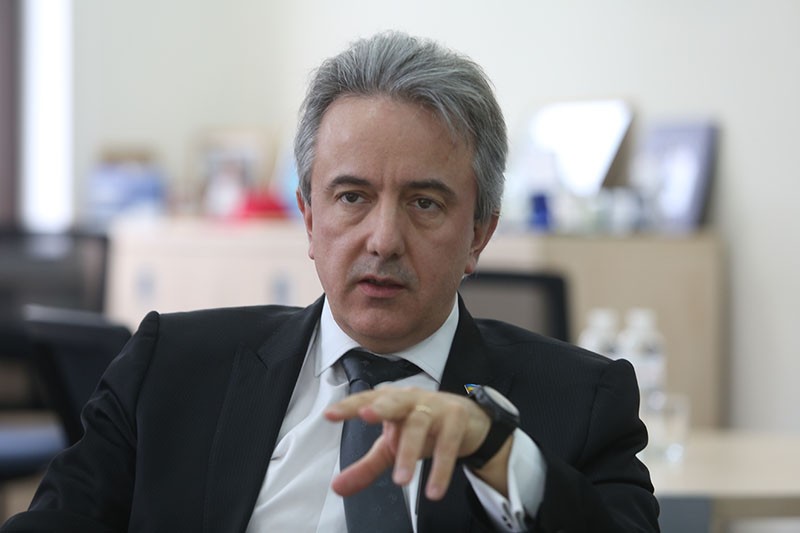The European Bank for Reconstruction of Development and foreign directors of state oil and gas monopoly Naftogaz have criticized Ukrainian authorities for being reluctant to carry out gas market and corporate governance reforms.
Under a plan agreed with the EBRD and the nation’s Western partners, Ukraine was expected to give the supervisory boards of state companies more independence in financial, management and human resource decisions. However, the government has so far failed to make the changes.
‘Risk of collapsing’
The EBRD, which agreed to give a $300 million revolving loan to Naftogaz in 2015, and the company’s foreign directors also objected to the Cabinet of Ministers’ attempts to assert more control over the state oil and gas giant, warning of more political interference and potential influence of corrupt vested interests.
“The reform of Naftogaz, which is justly recognized as one of the most meaningful reforms undertaken under your leadership, is at risk of collapsing within the next few days,” EBRD President Suma Chakrabarti said in an April 7 letter to President Petro Poroshenko and Prime Minister Volodymyr Groysman.
Naftogaz has been one of the nation’s great turnaround stories — posting a nearly $1 billion net profit in 2016, compared to a $1 billion net loss in 2015. The turnaround is attributed to a hike in natural gas prices to consumers, Naftogaz CEO Andriy Kobolev’s elimination of murky intermediaries and other steps to increase transparency since he took over in 2014.

Chief executive of Ukrainian state-owned gas firm Naftogaz Andriy Kobolev. (AFP)
Resignation
Yulia Kovaliv, chairwoman of Naftogaz’ supervisory board, and three independent board members — Marcus Richards, Paul Warwick and Charles Proctor — on April 6 threatened to step down due to the government’s reluctance to carry out corporate governance reform by making state companies more independent.
Kovaliv submitted her resignation on April 12.
If independent directors resign, “it would not only severely damage Naftogaz at a time when reforms were finally beginning to take hold, but it would also shatter the international confidence in your government’s commitment to reform and restructure Naftogaz and other key state-owned enterprises,” Chakrabarti said in the letter to Poroshenko and Groysman.
The EBRD said that the reform is being delayed by a lack of legislation. The bank also said that the government’s actions compromise “the intended independence and insulation of the company from undue political interference.”
Deputy Prime Minister Volodymyr Kistion has blocked changes to Naftogaz’ charter under which the functions of approving the company’s financial plans and appointing the executive board were to be transferred from the cabinet to Naftogaz’s supervisory board starting from April 1.
Chornovol amendments
The EBRD, Kovaliv and the foreign board members also criticized controversial amendments to the asset declaration law sponsored by People’s Front lawmaker Tetiana Chornovol and signed by Poroshenko in March. The amendments require anti-corruption activists and potentially investigative journalists to file e-declarations similar to those of state officials, which was seen by critics as a crackdown on free speech and civil society.
The amendments also apply the declaration requirement to state companies’ board members, including independent directors.
The declaration amendments “will seriously discourage worthy candidates with an international background and experience to apply for such positions, and hence deprive the country of much needed expertise for the transformation and proper governance of its state-owned enterprises,” the EBRD said.
Moreover, the new disclosure rules may also violate confidentiality clauses in foreign board members’ contracts and foreign legislation. There are fears that corporate governance reform may be killed due to the mass resignation of independent directors from state firms, with government loyalists and vested interests asserting complete control over them.
Gas market
The EBRD and board members also complained about the government’s alleged efforts to make Naftogaz a vehicle for populist social policies rather than a profitable business.
The board members said that the government’s policies would lead to liquidity problems for the company.
In March, the cabinet approved extending Naftogaz’s obligation to sell gas at a below-market price to households for a year.
The EBRD criticized this decision, and urged the Ukrainian authorities to achieve natural market liberalization, solve liquidity problems at Naftogaz and adopt all of legislation needed to achieve these goals.
The bank also said it would only provide further funding to Naftogaz if the Ukrainian authorities implemented the reforms.
Turf war
The moves by the EBRD and the board members followed a long-running conflict between Naftogaz’s leadership, including its CEO Andriy Kobolev and its supervisory board, and the cabinet.
In March, the cabinet approved the addition of another independent board member and one cabinet representative to the supervisory board, which would give the government more control over the company. Currently, the board comprises Kovaliv, the three foreign directors and ex-Energy Minister Volodymyr Demchyshyn.
The cabinet is likely to nominate Oleksiy Perevezentsev, an ally of Economy Minister Stepan Kubiv and Poroshenko, while a supposedly independent candidate will be chosen by a commission controlled by Groysman’s subordinates.
The cabinet and the Economy Ministry have also sought to take direct control over gas pipeline operator Ukrtransgaz, a Naftogaz subsidiary. But in March Naftogaz’s leadership fired Igor Prokopiv, the CEO of Ukrtransgaz, a decision that allegedly angered the cabinet.
Prokopiv, who has defended the cabinet in this conflict, has also admitted that he represented the interests of the People’s Front party. His dismissal followed an audit that found alleged violations of procurement rules at the company.
Harsh words
After the publication of the EBRD’s letter, Francis Malige, the bank’s managing director for Eastern Europe and the Caucasus, on April 13 also lambasted Ukraine’s investment policy, which he argues discourages investors.

Francis Malige (Kostyantyn Chernichkin)
“Ukraine has an image problem abroad,” he said at a meeting of the U.S.-Ukraine Business Council in Kyiv. “We need to realize that investors have a choice, and sometimes this choice seems unfair (for Ukrainians).”
Malige said that he had been shocked when he was approached at a business conference by a woman who had invested in Ukrainian and Iraqi bonds, but preferred the Iraqi ones.
Although Iraq is a war-torn and corrupt country, its sovereign debt to gross domestic product ratio is lower,. It is also an oil-exporting country, in contrast with Ukraine, Malige said.
He said that investment in Ukraine was being discouraged by lack of the rule of law, corruption, rules on the repatriation of dividends, high port fees, and high royalty rates.
Malige displayed a graph showing that more people want an autocratic government in Ukraine than 10 years ago due to pervasive corruption and lawlessness.
“Ukraine has made a lot of progress in the wrong direction over the past 10 years,” he said. “To me, that is a sign of corruption fatigue and government fatigue.”
